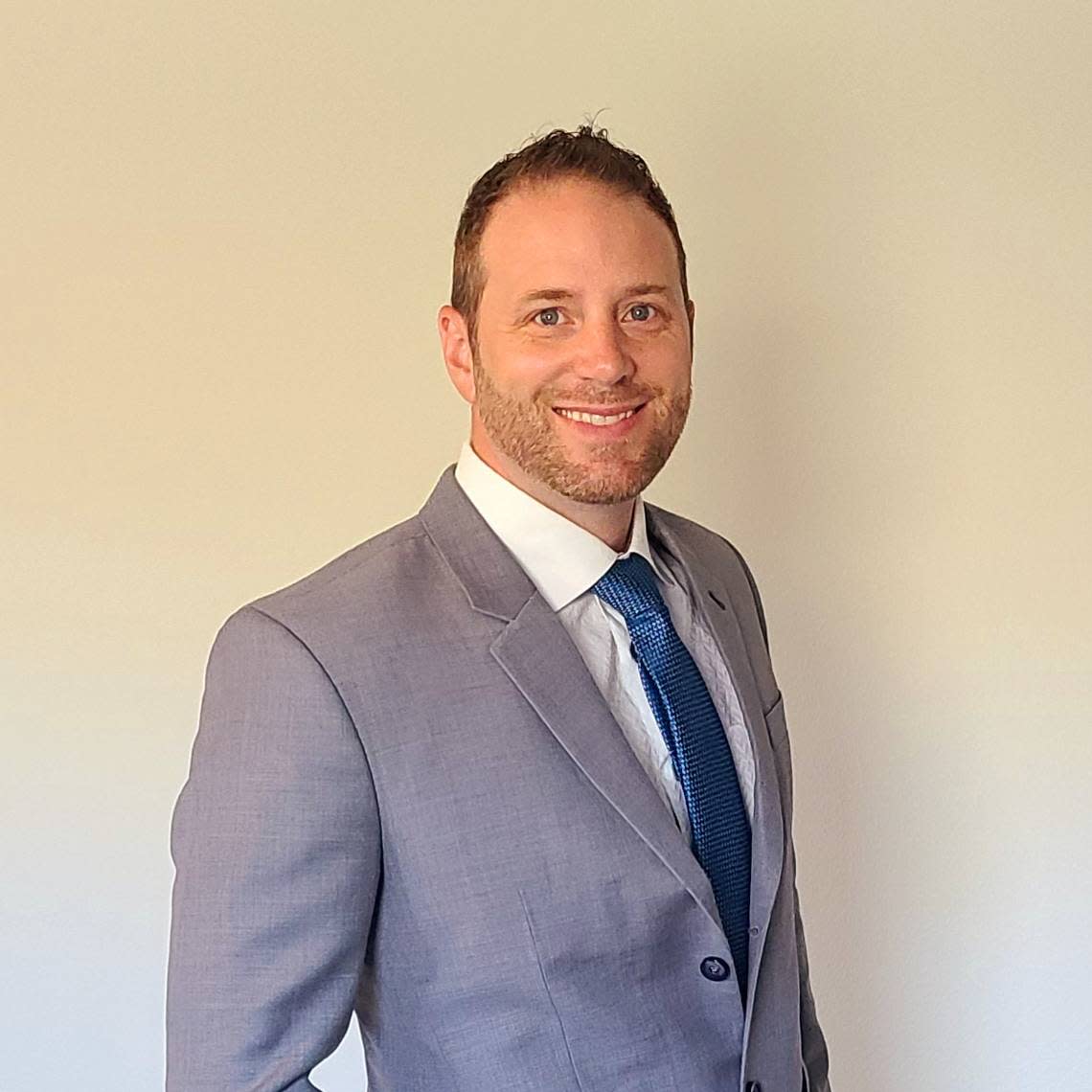Kennewick School Board clashes over gender identity, defining CRT. What it decided
The Kennewick School Board voted Wednesday night on two policy changes in an attempt to define Critical Race Theory and refine how parents are brought into discussions about changes to a student’s gender identity.
In a 3-2 vote following a heated debate, the board ultimately chose to vote down adding a definition of Critical Race Theory, or CRT, to the district’s policies on “Race and the Curriculum.”
Board members Mike Connors, Josh Miller and Brittany Gledhill voted against adding it, while President Gabe Galbraith and Vice President Micah Valentine voted for it.
Then, in a 4-1 vote on its first reading, the board approved a policy revision clarifying that parents should, in most circumstances, be included in discussions when a student wants to change their gender identity, pronouns or name. Connors was the lone dissenter.
CRT and public schools
The change would have defined CRT as “the belief that society is organized by racism and is an academic discipline that holds that the United States is a nation founded on white supremacy and oppression and that these forces are still at the root of our society.”
It also would have mandated that “the district and its partners will not promote or emphasize Critical Race Theory and its ideologies or tenets.”
Valentine brought the policy change forward, citing a need to “shut the door on this issue.”

The board made revisions to the policy two years ago, saying that students cannot be “indoctrinated into the belief that the U.S. is a fundamentally or systemically racist.” Valentine believes defining the issue is essential, and says it would bring more apprehensive families back into the public school system.
But CRT isn’t taught in Kennewick schools, Superintendent Traci Pierce has previously said.
And Washington Superintendent Chris Reykdal has repeatedly shot down accusations that public schools are teaching CRT or engaging in inappropriate political talk.
“I think right now we have a policy that is a little bit gray and leaves the door open, and we have a chance to just close the door and answer the question,” Valentine said Wednesday. “When people ask, ‘Are you guys teaching Critical Race Theory in Kennewick School District?’ We obviously say no. But then they say, ‘But you don’t say that. There’s nothing that says you don’t teach it.’”
The term Critical Race Theory emerged in the 1970s in legal circles as a way to examine the law in how it serves the interests of people in power at the expense of others.
Conservatives in recent years have coopted the term CRT as a broad umbrella to encompass progressive ways of re-examining the U.S.’s troubled history with slavery, racism and civil rights.
It’s a culture war issue that has arisen in recent years as progressives and conservatives debate over how best to teach the nation’s youth.
But one school board member took aim at Valentine, accusing him of engaging in partisan politics and for rehashing old issues, calling the policy change an “astronomical waste of time.”
“We settled this, we talked about it, we laid it out. There’s no reason to revisit this. This is absolute political BS,” Connors said.
“You’re pandering to people because you think somehow that you’re going to get back at these people if we just write this down on a piece of paper. It’s total horse shit — it’s got nothing to do with nothing,” he said.

Citing other arrangements he had to get to, Connors left the meeting before a vote could even take place. He told the clerk he would be a “no” vote on both the CRT definition and changes to the district’s gender-inclusive schools policy.
Miller said he had difficulty supporting the definition because the term has become so nebulous in society and has different definitions to different people.
Most people would agree with the crux of what they’re trying to accomplish, he said, but using the term opens it up to confusion and polarization.
“What is the benefit of using this term, which is very polarizing and which is very poorly defined no matter which definition you use?” Miller asked.
“If they hear you can’t teach Critical Race Theory, what will they think that means? They’re not going to go and look at our definition in most cases, they’ll just assume that the definition is the one they know, which may or may not be the one we use,” he said.
Galbraith said he understood the arguments being made on both sides of the issue.
Gender-inclusive terms
The school board plans to make changes to how queer and transgender students go about disclosing to the school staff changes to their gender identity or name.
The board wants to encourage students and staff to involve family and parents on all major discussions about gender identity unless a scenario presents itself where identifying those changes could harm the student.
“A student’s fear or concern about their family learning of their gender identity should not be automatically discounted,” the proposed policy amendment reads.
“However, the students’ stated preferences are not the sole factor to consider. Decisions about communicating with a parent/guardian about such things should be made holistically based on as many factors as the school is aware (of).”
Washington state law prohibits discrimination and harassment on the basis of gender expression or identity in public schools. School staff and teachers must address students by their preferred names, pronouns and gender designation. Parents still have the right to access their child’s education records up until they turn 18.
Kennewick is not removing any of the state’s model policy against discrimination as listed in Policy 3211 on gender-inclusive schools.
“Staff members don’t have any interest in keeping information from parents,” Pierce said, adding that in most cases parents and students come to staff together to make gender-identity changes.
But Kennewick School Board members believe it’s important in most instances to bring parents into the discussions.
“It is not the proper role of the school to foster curriculum, instruction or activities which would reasonably be expected to lead children to question their gender identity, when no such questions existed before,” the proposed policy says.
“Gender affirming’ curriculum, instruction and/or activities in schools will not be provided where it is not part of the board-approved subject manner of a particular class,” it reads.
The vote passed on first reading, meaning that the policy change will come back to the school board for a second, final reading before being voted on. If it passes it becomes official policy.
School board student representative Mallory Dupaquier said she believes fallout between students and parents over gender issues is more common than the board makes it out to be.
She’s heard instances of kids being kicked out of their home, ostracized by their parents or feeling that home is no longer a safe place for them.
“I hear this stuff all the time. It’s not an extreme for parents to react like that at all. I just think it’s a lot more common than you guys think. But I understand, it’s difficult and is a balance,” she said.
She thinks fewer transgender and non-binary students will be willing to be open about their sexuality if schools push more to have their parents involved in policies like this.
